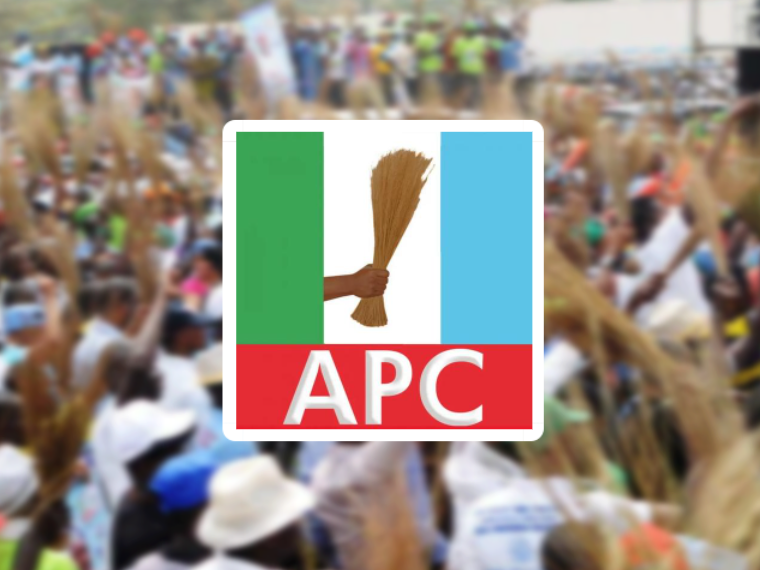Africa
APC’s Renewed Hope: When Healing Causes More Pains, by Isaac Asabor

The All Progressives Congress (APC) swept into power on the wings of the promises of “Change” in 2015, and “Renewed Hope” in 2023, respectively for a country battered by economic mismanagement, corruption, and insecurity. The APC’s message of renewed hope under President Bola Tinubu was meant to inspire trust, but for millions of Nigerians today, that hope feels more like a mirage, especially as the economic reforms initiated by the administration seem to cause more pain than relief.
Upon assuming office, President Tinubu made bold moves that his government claimed were necessary to “heal” the economy. The removal of fuel subsidies was one such step, aimed at redirecting resources towards more impactful development projects. The administration argued that the subsidies were draining the country’s finances and benefiting only a few at the expense of the many. However, this has led to an increase in fuel prices, which in turn spiked the cost of living. Transportation, food, and even basic household goods are now beyond the reach of many ordinary Nigerians.
“The government said things would get better, but it seems like it is only getting worse,” laments Iya Wale, a market woman in Ikeja. “I can no longer afford the same things I used to buy for my family. My children eat less, and the money I make is not enough to sustain us.”
This sentiment is echoed across the country, as people wrestle with the day-to-day realities of surviving under a government that promises healing while implementing policies that compound their struggles. For those at the bottom of the economic ladder, the APC’s renewed hope is quickly losing its luster.
At a busy bus stop in Surulere, Lagos, an elderly man in his 60s named Musa angrily voices his frustration: “I voted for change, but what I see today is hardship like I’ve never known before. Fuel is too expensive, food is too expensive, and now they say they are sharing palliatives, but I haven’t seen a grain of rice reach my house.”
Musa’s concerns are shared by millions. The much-talked-about palliatives, intended to cushion the blow from the economic reforms, have yet to reach the most vulnerable. Those who do receive them often report receiving amounts too meager to make any meaningful impact.
Ngozi, a schoolteacher in Enugu, expresses her worry for the future: “The cost of education has increased, and my salary remains the same. I fear for my children’s future. How can I afford to send them to school if things continue this way?”
The APC administration has outlined several plans aimed at long-term economic stability. These include infrastructure development, improvements in the power sector, and job creation initiatives. However, many Nigerians are asking a critical question: how much longer do they have to endure the pain before they see any tangible benefits?
As government officials speak of reforms aimed at revitalizing the economy, many citizens feel they are bearing the brunt of policies that serve only to benefit the elites. One Lagos commuter noted with bitterness, “Those in power don’t feel this pain. They still live lavishly while we suffer. If this is the hope we voted for, then we are truly lost.”
The wide gap between government officials and the masses has never been more pronounced. As Nigerians face fuel hikes, inflation, and soaring costs of basic goods, many are left questioning if their voices matter to those at the helm of power. It seems as if, in the bid to fix the economy, the very essence of people’s daily struggles is overlooked.
In a biting tone, a civil servant in Port Harcourt says, “When they talk of a sacrifice, who is really sacrificing? It’s us, the common people. They sit in their big houses, eating well, while we worry about affording a meal each day.”
The phrase “Renewed Hope” now carries a bitter aftertaste for many. As more voices speak up about their hardships, it is evident that while the government seeks to heal the economy, it has inadvertently caused more pain for those it was meant to help.
There is a growing call for the government to temper its policies with compassion. Nigerians want to see real, immediate relief. Whether through more accessible palliatives, wage increases, or policies that ensure the average citizen can make ends meet, the message from the masses is clear: the people cannot continue to bear the full weight of economic reforms.
One young man, Olumide, a motorcycle rider in Abuja, pleads, “If the government really wants to help us, they need to listen. We are suffering out here, and it feels like nobody cares.”
The APC came into power promising a renewed hope that would uplift all Nigerians, but for many, this hope feels distant and elusive. The pain of the economic healing process is palpable across the country. If the administration wishes to regain the trust and support of the people, it must urgently address the gap between policy and reality. The Nigerian masses are crying out, not just for hope, but for immediate relief. And for their sake, this hope needs to be renewed with action, not just words.





















